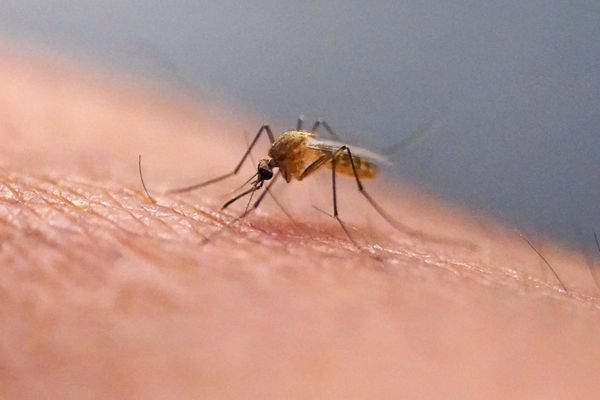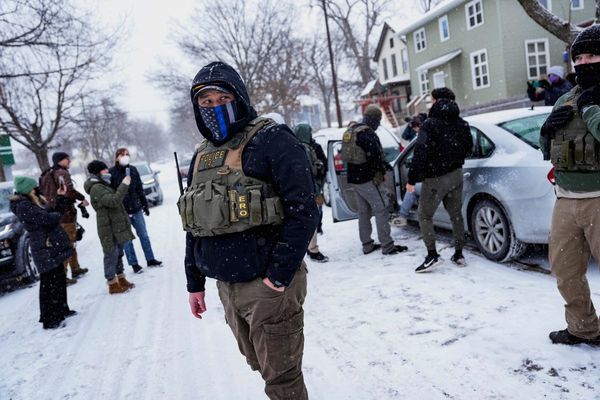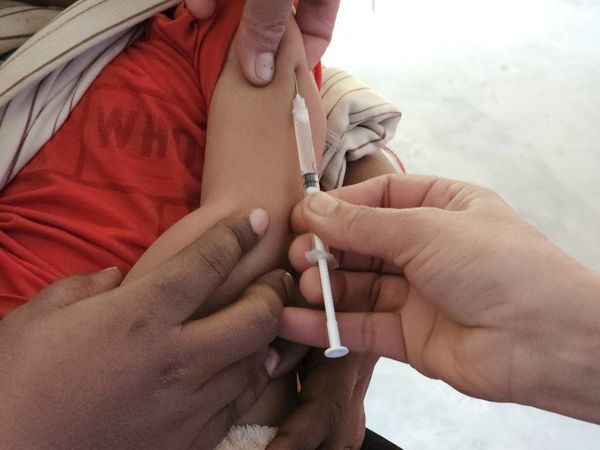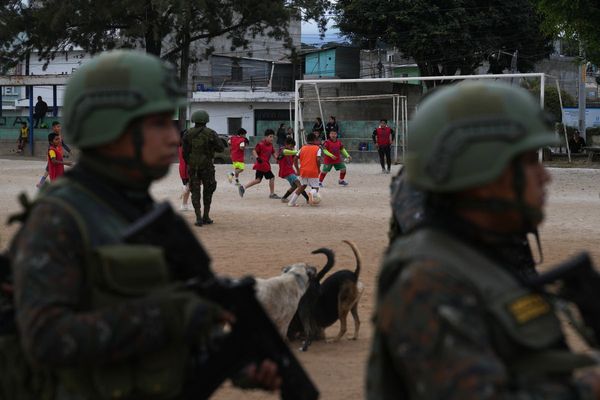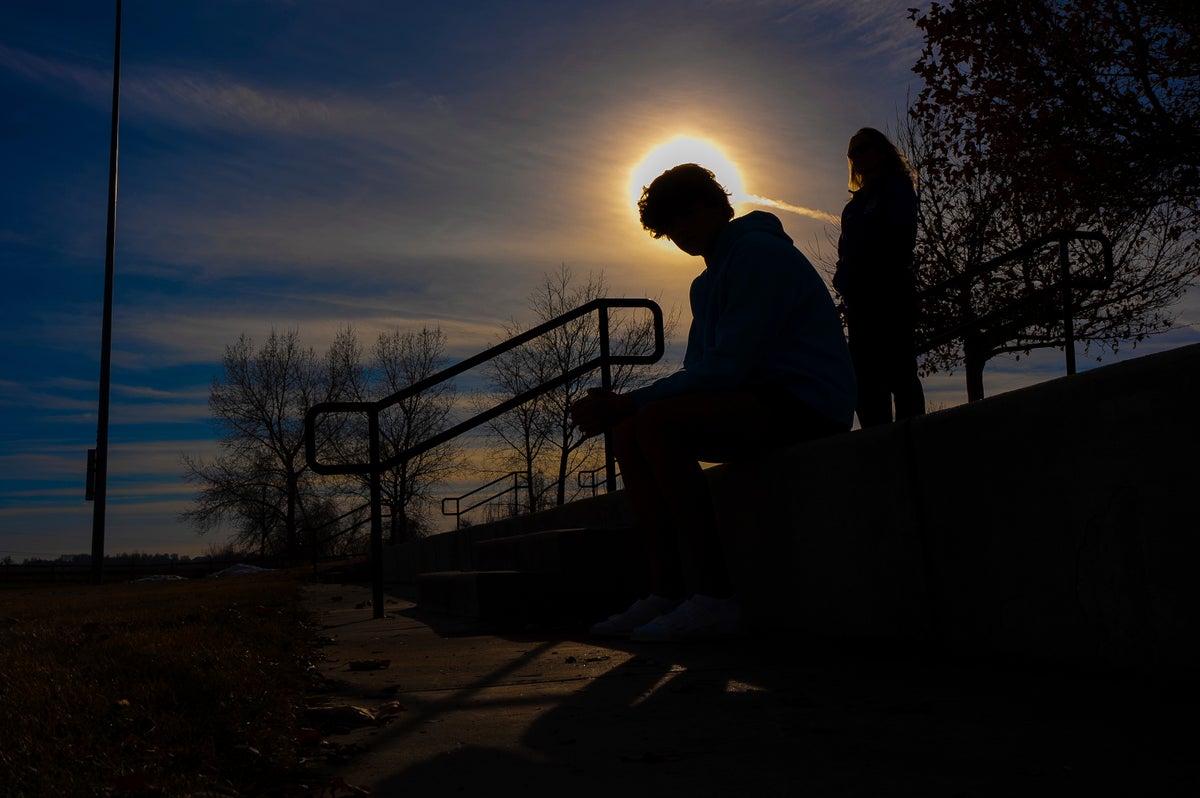
The email, addressed to the 13-year-old swimmer from the U.S. Center for SafeSport, came out of the blue. “Between approximately 2019 and 2022, you allegedly engaged in a pattern of behavior which constitutes Sexual Misconduct,” it read, with both final words capitalized.
That was in April 2022. It took three months for the 8th grader to learn what the accusations were: A claim he had slapped another teammate on the butt in a locker room 10 months earlier, in June 2021.
More than 20 months later, the case remains open, even after local police in the town 40 miles north of Denver investigated and dismissed it within weeks. Now 16 and a high school sophomore, the teen's promising swimming career has been plunged into uncertainty by the temporary sanctions imposed by SafeSport — and the hard-to-escape taint of presumed guilt as the case drags on.
“Their allegations are entirely untrue,” said the teen, who The Associated Press is not identifying because he is a minor. “So my reaction, when I heard them, I was thrown off and confused. And then I was upset."
The SafeSport Center was established in 2017 to investigate and punish abuse in Olympic sports in the aftermath of the Larry Nassar gymnastics molestation cases that revealed flaws in the way U.S. sports leaders handled sex-abuse cases.
The center’s mandate extends well beyond the Olympics, however, reaching into the grassroots level of more than four dozen sports. The teen swimmer's situation illustrates the impact of that broad authority as its overtaxed investigative team takes on cases that often don't involve elite athletes in the Olympic system or even directly entail sexual abuse or misconduct.
The teen's mother says most of the family's questions to SafeSport have taken days or weeks to be answered. Many of the responses, she said, are the equivalent of a shrug — they don’t know, or they’ll get back.
“I think the guilty-until-proven-innocent aspect is what bothers me the most, because right now, he’s still (considered) guilty until the case is finalized,” she said.
The slow-moving timeline fits into a common theme at an organization that operates on a $24 million annual budget, received around 7,000 complaints last year and has about 65 employees in its “response and resolution department.” Cases take too long because there are too many and too few people to handle them.
“I asked if I could see a copy of the report. They said ‘Yes, eventually,’" the teen's mom said. "I asked, ‘When?’ They said ‘When we’re done.’ I asked, ‘When’s that?’ They said, ‘We don’t know.’”
“I scratch my head and wonder if they’re overwhelmed, if they just don’t have the staff to take care of all the complaints that are coming in. Or, are they incompetent?" she said.
When the family reached out in November for an update, a SafeSport investigator told them he "could not provide a firm timeline” for resolving the case, the mother said.
The center’s spokesperson, Hilary Nemchik, told the AP she could not speak about specific cases, but “those types of responses are not consistent with the center’s values or our commitments to athletes and will certainly be reviewed.”
Not until fall of 2023 was the teen able to register for a USA Swimming event, and then, only with restrictions: He had to be chaperoned on the pool deck and could not come into contact with his accuser.
This reached a boiling point at a swim meet in November, when the swimmer’s mom, who has taken over duties as his full-time coach, briefly turned away from her son on the pool deck. He was then approached by a meet referee who notified him he was breaking the rules and wouldn't be allowed to come back for the second day of the competition.
That deprived the teen of swimming in his best event, where he had previously swam times that could’ve qualified him for a key junior national meet in December.
Contacted by AP, Linda Eaton, the referee who removed the boy, would not comment about the case.
“I appreciate your efforts to understand a SafeSport concern,” she said in an email. “I suggest you talk to the people at the U.S. Center for SafeSport.”
The SafeSport letter also alleged the swimmer engaged in “bullying behaviors.”
The teen said he and the teammate who accused him and another boy who claimed to have witnessed the incident had previously exchanged accusations of bullying. His mom said those episodes were resolved by the schools and swim clubs the boys attended before SafeSport was involved.
Reached by the AP, the accuser’s mother acknowledged she had filed a report on behalf of her son but did not respond to a request for an interview.
The accused swimmer's mother said when SafeSport's letter landed, so many months had passed since the boys had their falling out that “we had no idea what the accusations were, and we had no idea what was going on.”
In fact, it wasn’t SafeSport, but the local police department that first shed light when an investigator contacted the accused teen and his family in early July 2022 to ask questions about the alleged episode.
By October 2022, the police department had dismissed the case.
Nemchik said the center’s policy is to make decisions free from influence of law enforcement, noting the center relies on a “lower standard of proof ... which at times allows it to act on cases law enforcement may not." She said law enforcement's shortcomings — for instance, a 2021 Justice Department report that found the FBI failed on multiple levels in its handling of the Nassar allegations — were part of the reason the center was created.
Nemchik also defended the center’s mission to handle grassroots cases, saying that many of Nassar’s victims were club-level gymnasts who were not on the Olympic path.
“The center is fully committed to its mission to end abuse in sport, which goes well beyond national teams and elite athletes,” she said. “Any proposal to limit athletes’ access to accountability runs counter to our mission.”
But, she added, “the center needs more financial resources to support the growing number of reports.” The 7,000 allegations received in 2023 mark around a 30% increase over 2022 and a nearly 350% increase over 2020.
"At the rate we are seeing more reports coming in, I think we are kind of staring down a barrel right now of, like, what’s going to happen next?” SafeSport Center CEO Ju’Riese Colon said at a congressional hearing in September.
The family’s best chance to put an end to the SafeSport case came in November 2022, when the center offered the teen an “informal resolution”: If he would admit to slapping the other boy, he could go back to swimming with a six-month probation.
“We asked my son, ‘Are you OK with this?’” the mother said. “And he said ‘No, I’m not going to admit to something I didn’t do.’"
While the teen's sanctions have not kept him out of high school swimming, where he swam a full season his freshman year, the family worries the opportunities missed by not being able to swim in club meets could impact his future.
The family also worries about whether the case — whether still pending or eventually resolved — will be something prospective college recruiters might see and wonder about.
“It's just really frustrating thinking that it's still causing problems,” the teenager said.

